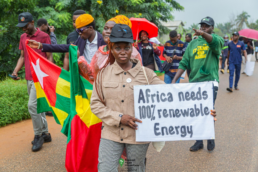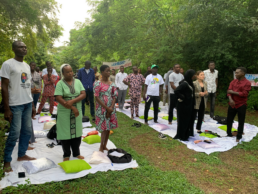Tick Tock on the Climate Clock: Youth activists from West Africa Unite for Renewable Energy
From July 19th to July 22nd, over 200 young people from across West Africa gathered to call for urgent measures to tackle the climate and energy crises during an annual forum dubbed the Regional Youth Climate Camp. Organized by the Renewable Energy Coalition members in Benin (ADJEC & JUPD), it was a space of connections, discussions, training, and sharing of experiences on the best practices in terms of community-led renewable energy projects.
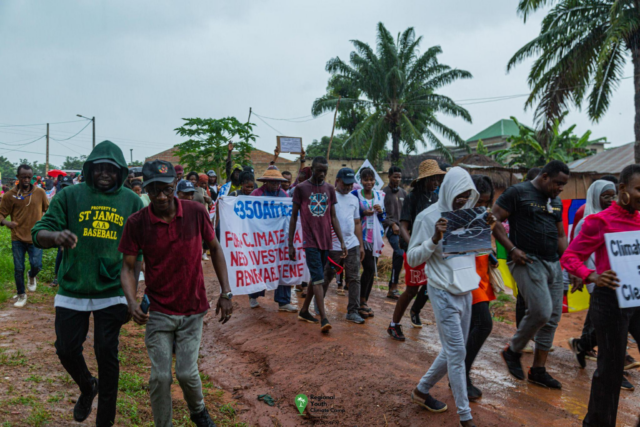
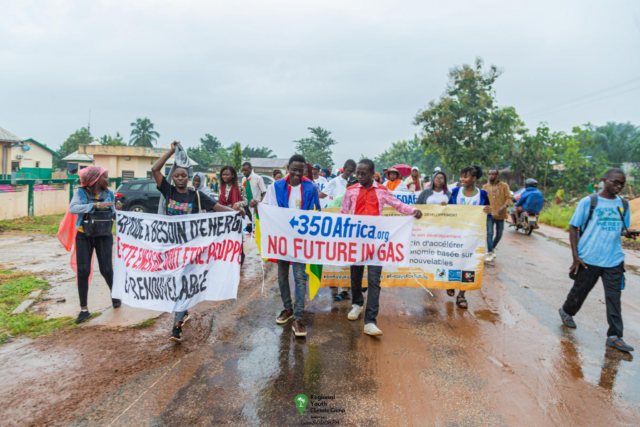
As the heat kept breaking record numbers, the power of collective action and unwavering determination was palpable in the air. Civil society organizations and passionate youth groups around the world gathered and held synchronized actions to mark Climate Emergency Day, on July 22nd. In some areas, activists brought climate clocks from different impacted zones to different business headquarters, demanding that governments and corporations #ActInTime to deploy the global solutions to meet the climate deadline. This is no time to build walls; we need bridges. Climate change affects us all, no matter where we live.
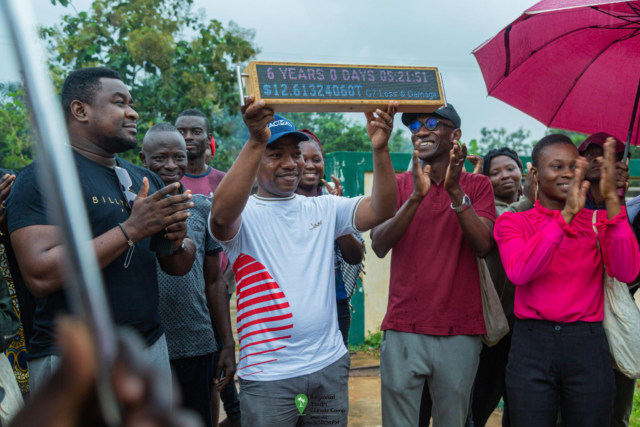
In Benin, the Regional Youth Climate Camp was an opportunity for the youth to raise their voices, shake the world awake, and demand urgent action to tackle the pressing climate crisis. The forum aimed to train and share tools for organizing/campaigning on renewable energy, share the key findings of the renewable energy report by 350Africa.org and mark the Global Climate Emergency Day through a peaceful march geared at advocating for development of renewable energy.
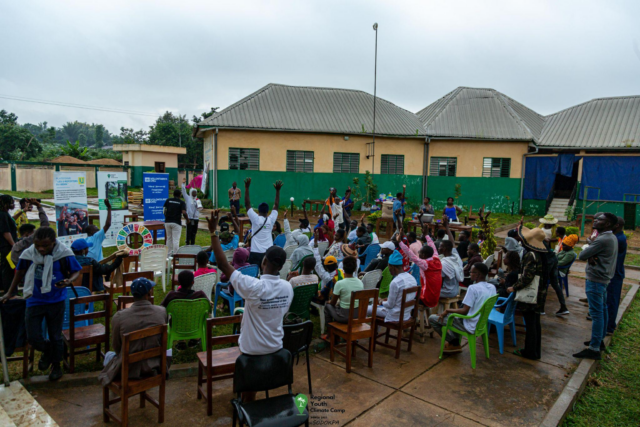
Urgent Demands for a Sustainable Future
As the gathering commenced, a clear and unified agenda emerged. Among the demands were:
- A call for safe, reliable, and affordable renewable energy:
The quest for safe, reliable, and affordable energy is no longer a luxury but a necessity to safeguard Africa's future. Embracing renewables will not only address the pressing energy needs but also pave the way towards a cleaner, greener continent.
- A just transition to address energy needs and catalyze development
By embracing clean energy solutions, Africa can reduce carbon emissions while creating new job opportunities and fostering socio-economic development in the region.
- Zero investments in fossil fuels:
Redirecting financial resources towards renewables will accelerate the transition and steer Africa away from its dependence on harmful energy sources.
- AfDB's support for 100% renewable energy:
The African Development Bank (AfDB) plays a pivotal role in shaping the continent's energy landscape. Young people call on the AfDB to be at the forefront of renewable energy investment, supporting 100% clean energy projects that can transform Africa's future.
- Greater renewable energy ambition and targets in African nation’s NDCs:
Young leaders demand higher renewable energy targets in the Nationally Determined Contributions (NDCs) of African countries. By setting higher renewable energy targets, countries can pave the way for a greener future thereby pushing the climate agenda forward.
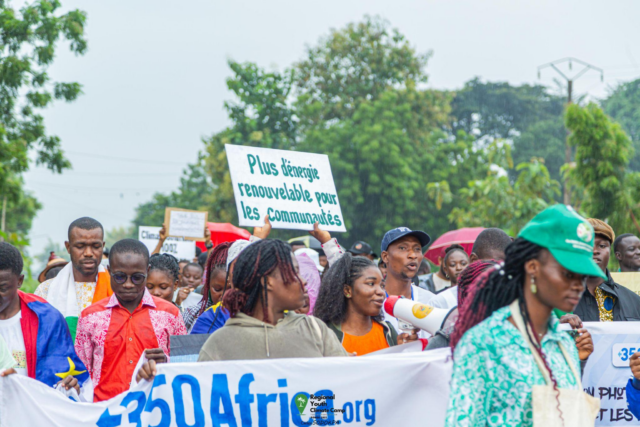
More than 200 activists were trained on organizing for climate solutions and over 500 joined a peaceful march to advocate for renewable energy on Climate Emergency Day. Simultaneously, several groups and civil society organizations from Senegal, Côte d’Ivoire, Nigeria and other West African countries joined the movement and organized their own events for more widespread climate education to mobilize global action and foster a culture of sustainability.
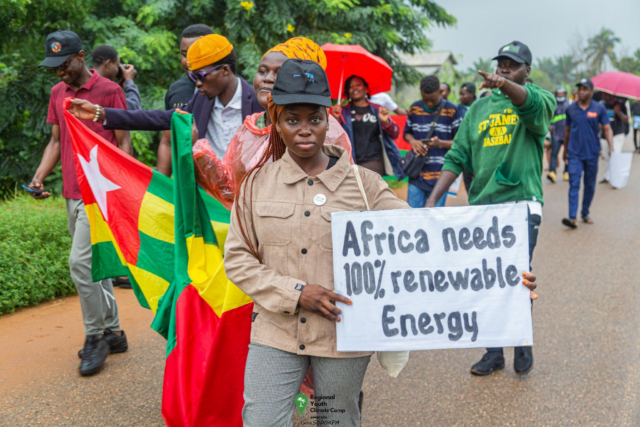
“On climate emergency day, we acknowledge the abundant renewable energy potential in most African nations, offering opportunities for clean energy growth and prosperity to meet the needs of people and economies. Many countries have committed to energy transition plans, moving away from polluting fossil fuels and embracing a sustainable and secure energy future with social and economic benefits. We are joining the calls to end the fossil era before it is too late. The negative socio-economic and environmental impacts of fossil fuels demand urgent action. We call for substantial investment to expedite the implementation of renewable energy solutions. The harmful practices of fossil fuel exploration and production must not shape our continent's or the world's future. As climate impacts worsen, injecting financing into renewable energy becomes critical to support a just transition in Africa” says Christian Hounkannou, Regional Organiser at 350.org.
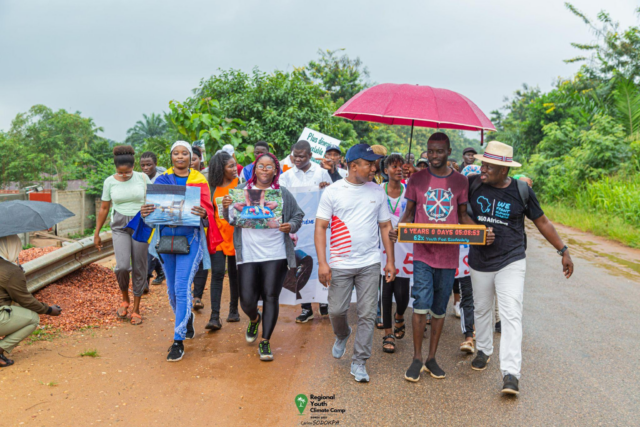
The climate emergency in Africa is not a distant, hypothetical scenario. It's a clear-eyed, science-based reality that demands our immediate attention. The climate clock is racing towards a tipping point. We've got less than 6 years to drastically lower greenhouse gas emissions to keep global heating below 1.5 degrees celsius and rewrite the climate narrative.
The vision of West Africa's youth is clear: to build a 100% renewable energy future. With political will, innovation, collaboration, and determination, West Africa can achieve a sustainable clean energy future
If you want to join in the fight, check out the resources on our website and help us spread the word on social media platforms with a few messages you can find here .
Post Africa Climate Summit Session in Benin: key outcomes and youth expectations ahead of COP28
On 4-6 September, the Kenyan government hosted the first-ever Africa Climate Summit, which concluded with the release of the African Leaders Nairobi Declaration on Climate Change and Call to Action. The Summit gathered around 20,000 delegates including grassroots, and frontline activists to represent the voice of civil society.
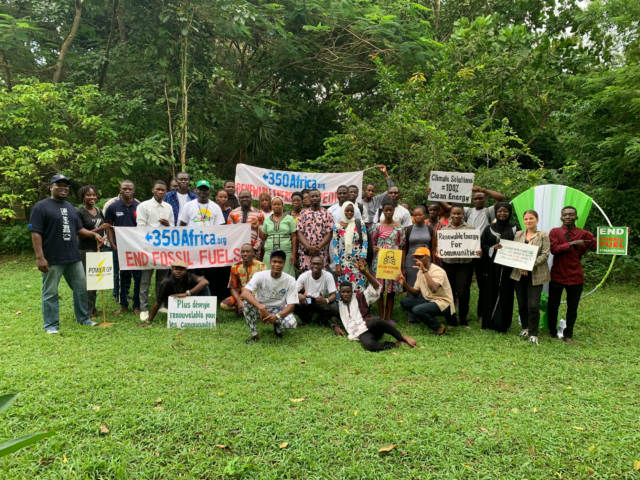
As part of the renewable energy debates with experts in the universities, the Renewable Energy Coalition (REC) members in Benin Republic organised on 23 September a session to highlight the key outcomes of the Africa Climate Summit and the need to massively scale up renewable energy in Africa.
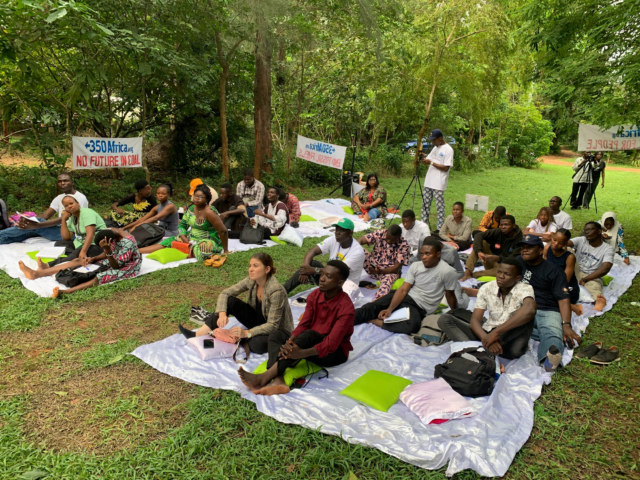
The session took place at the national university of Benin and gathered around fifty young people, journalists, civil society organisations and experts from the ministry of environment. The organisers highlighted some of the positive notes from the African Leaders Nairobi Declaration on Climate Change:
- Accelerate all efforts to reduce emissions to align with goals set forth in the Paris Agreement
- Honor the commitment to provide $100 billion in annual climate finance, as promised 14 years ago at the Copenhagen conference.
- Uphold commitments to a fair and accelerated process of phasing down coal, and abolishment of all fossil fuel subsidies.
Then, they reiterated the will to see more efforts from the African Leaders to increase renewable energy capacity on the continent to address Africa's energy needs and also to mitigate the impacts of climate change.
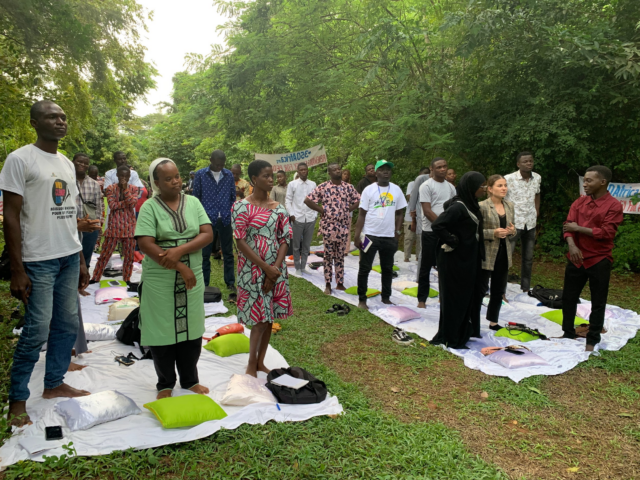
Together, the participants sang the energy future they want in Africa that should connect to 100% renewable energy instead of being connected to fossil fuels. During the space dedicated for questions-answers, the organisers shared their plan ahead of Power Up to denounce the fossil fuels industry and call for the real Climate Solutions instead of the push for the false Solutions, and the additional funding needed to tackle the climate crisis.
Anas Seko,
Renewable Energy Coalition (REC), Benin


